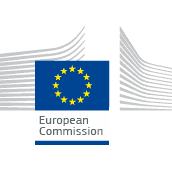
EuroHPC Virtual Training Academy
Deadline: Jun 6, 2024
CALL EXPIRED
CALL EXPIRED
Innovation
Environment
IT Applications
Education and Training
Higher Education
Research
High Performance Computing
- A EuroHPC Competence and Qualification Framework (CQF) for HPC based on a modular skills tree of competences and learning objectives, addressing the gap between basic digital skills and domain specific specialist knowledge.
- Wide adoption of the CQF by the HPC community in Europe, including higher education institutions and professional training providers.
- A certification scheme linked to the CQF with broad acceptance of qualifications as proof of HPC competences by education and training providers, public and private employers.
- Increased competitiveness and innovation by contributing to the development of a more skilled and knowledgeable HPC workforce, which will enhance the competitiveness and innovation potential of European companies and research institutions.
- Increased mobility and improved career opportunities by facilitating the recognition and validation of HPC skills and qualifications across Europe, making it easier for HPC professionals to move between different countries and for employers to compare and assess the qualifications of potential candidates.
- Improved quality assurance by promoting transparency and trust in the HPC training and certification system. It supports HPC training programs to align with the needs of the HPC industry and research community and meet high quality standards.
- Cooperation and exchange between education and training providers across Europe, by enabling the sharing of best practices, resources, and expertise, and foster innovation in teaching and learning. Overall, a more dynamic and competitive HPC education and training environment is established, which will benefit learners, educators, and employers alike.
Central objective of the action is to establish the EuroHPC Academy covering the multidisciplinary field of HPC, including related areas such as emerging technologies (e. g. quantum computing), and its cross-cutting dimension. The Academy should significantly contribute to the development of coordinated HPC education programmes addressing a wide range of stakeholders, including academic education programmes, professional training, short-term courses, individual and independent learning. The action will ensure the availability of common quality and qualification standards in HPC, the compatibility of training modules and learning objectives as well as the uptake of standardisation of training and education in the European HPC ecosystem. Based on a skill tree identifying HPC key competences in a systematic and structured approach, the action will significantly improve the quality and availability of HPC training for European HPC users. A broadly recognised certification scheme for HPC competences in combination with high quality didactically consistent content, including exercises and assessments, will encourage also individual and independent learning. Overall, the Academy will significantly contribute to a more knowledgeable HPC workforce driving innovation and competitiveness in the European economy.
Scope:The activities of the EuroHPC Academy will be centred around several action pillars. The pillars represent key strategic components and work together to achieve the objectives of the virtual academy.
- Competence and qualification framework (CQF)
- Reference course material for the modular CQF
- Assessment and certification scheme
- Technical infrastructure
The EuroHPC Academy will support training providers with the implementation of HPC education, training, qualifications and assessments. It will provide structured material, exercises and assessments linked to a certification scheme which will incentivise also individual and independent learning. Central for the widest possible adoption of services are cooperation activities with the relevant stakeholders and communities including, but not limited to, Hosting Entities of EuroHPC supercomputers and EuroHPC initiatives such as the network of National Competence Centres for HPC (EUROCC 2, CASTIEL 2), the European MSc programme for HPC (EUMaster4HPC) and the European skills platform (HPC SPECTRA). As the EuroHPC Academy will exercise authority over the modular HPC curriculum, learning objectives and qualification standard, the consortium will establish close cooperations and effective feedback loops. Specifically with higher education institutions cooperations are of outstanding importance to ensure alignment and compatibility of the modular CQF with the European Credit Transfer and Accumulation System (ECTS). The CQF should allow training providers a maximum of freedom for the implementation according to the requirements of their target groups, while ensuring a common standard for the assessment of competences and the certification of qualifications.
The JU considers that proposals requesting a contribution from the EU of up to EUR 6 million and a duration of 4 years would allow this specific challenge to be addressed appropriately. Nonetheless, this does not preclude submission and selection of proposals requesting another duration or other amounts. Only one proposal will be selected.
Public link: Only for registered users
 Digital Europe Programme (DIGITAL)
Digital Europe Programme (DIGITAL)
Please Log In to See This Section